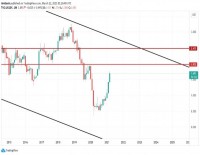|
|
Extensive Rules in the Works
Two events have opened the way to major rulemaking by the Commodity Futures
Trading Commission. One is the passage of the Dodd-Frank Wall Street Reform and
Consumer Protection Act by US Congress this year. The other is the Flash Crash,
as the temporary but extreme market disruption on May 6th came to be known.
"We have dozens of rules to write and our job of regulating and enforcing these
markets will be huge," says CFTC Commissioner Bart Chilton. "Congress gave
regulators the responsibility to implement the law." Not surprisingly, he and
other officials want a larger budget from Congress to pay for additional staff
and technology. They complain about not getting more resources.
"We've experienced momentous regulatory reform-the biggest, to be sure, since
the New Deal," says Scott O'Malia, another Commissioner.
The changes under the Dodd-Frank Act are extensive but many of the goals are
vague, including the central idea of reducing systemic risk. "The essence of
Dodd-Frank is the reduction of systemic risk, often cloaked in catchy, quotable
terms like 'too big to fail,' 'too interconnected to fail,' and 'dark markets,'"
Mr. O'Malia said at a meeting.
To put the notion into practice, he suggested thinking of the worst scenario.
"In each rulemaking, I think it is important to ask and answer the following
questions, "What is your worst day going to look like and how do we prevent that
from happening?" he said.
Other provisions of the new law are focused on specific markets. For instance,
the Act prohibits swaps in an agricultural commodity unless there is an
exemption. To clarify what this means and develop rules for implementation, the
CFTC is holding a meeting about how to define an "agricultural commodity" as
well as other issues including what position reports to require for physical
commodity swaps.
The Commission is taking public comments on the appropriate regulatory treatment
of agricultural swaps.
Record Investigations
At the same time, the agency is clearly on a mission to show that it is an
effective enforcer of existing regulation. It announced that its enforcement
program filed 57 actions in Fiscal Year 2010 (which runs through September).
This is 14% more than enforcement actions in FY 2009 and 42% more than those in
FY 2008.
The CFTC got more than $186 million in civil penalties, restitution and
disgorgement from defendants in these cases. Commodity pool frauds and retail
foreign currency schemes accounted for the most actions (see table). In
addition, the Division of Enforcement started an all-time high of 419 new
investigations during the year, 66% more than the 251 investigations started in
FY 2009.
---------------------------------------------------------------------------------------
|
Enforcement actions by the CFTC in Fiscal
Year 2010
|
|
Commodity Pools, Hedge
Funds, CTAs |
15 |
|
Foreign Exchange Fraud |
14 |
|
Trade Practice |
11 |
|
Financial, Supervision,
Compliance
and Recordkeeping |
8 |
|
Manipulation, False
Reporting
or Concealing Material
Facts |
6 |
|
Fraud By Futures
Commission Merchants,
Introducing Brokers and
Associated Persons |
2 |
|
Statutory
Disqualification |
1 |
-----------------------------------------------------------------------------------------
This trend of increased disciplinary actions is almost certain to continue.
Dodd-Frank expanded the Commission's enforcement authority, which now covers
swaps and certain disruptive trading practices. In addition the CFTC was given
rulemaking powers for practices not yet identified. Under this authority,
certain high-frequency or algorithmic trading practices could be prohibited.
Flash Crash Lessons
Regulators made a significant effort to understand and respond to the May
6th chain reaction that started with a futures contract and spread to multiple
markets. A detailed report on the topic is the first step.
"It wasn't that the technology failed; in fact, just the opposite appears to be
true," according to Commissioner O'Malia. "The algorithms operated as
programmed, and the high frequency traders operated as usual. However, on that
day, the market was very nervous over the Greek debt crisis and other bad
economic news, just as a large sell order came into the S&P500 E-Mini futures
contract, triggering a mass exodus of buy-side liquidity."
He says this was not a one-off event, computer-generated violations are a major
regulatory loophole and whoever put the algorithm in motion should be fully
liable for the harm it causes to the market and traders.
CFTC Chairman Gary Gensler says the questions to be considered include whether
executing brokers have an obligation to enter and exit markets in an orderly
manner and whether they should have to adopt certain restrictions such as price
or volume limits when executing large orders by use of an algorithm. In
addition, there is the issue of increasing the transparency of the full order
book in futures markets and what technology to use for this purpose.
Working with the Securities and Exchange Commission, the CFTC is to develop
cross-market circuit breakers and other restrictions to slow down falling
markets and prevent chain reactions. Speed limits are a possibility.
Palladium and Platinum
Gold and silver-based exchange-traded funds have grown substantially-see Index
Tracker. The CFTC granted exemptions that allow options and futures on gold and
silver ETFs to be cleared as options on securities and security futures. Similar
contracts are expected for other precious metal ETFs.
The Options Clearing Corporation has asked for a rule amendment that would
permit options and futures on ETF Securities Ltd.'s Physical Palladium Shares
and Physical Platinum Shares, both listed on NYSE Arca. This is the first time
there is a request to trade and clear options and futures on palladium or
platinum ETFs.
The Commission solicited comments and is examining the distinct characteristics
of the palladium and platinum markets as compared to the gold and silver
markets.
|





 RSS
RSS











